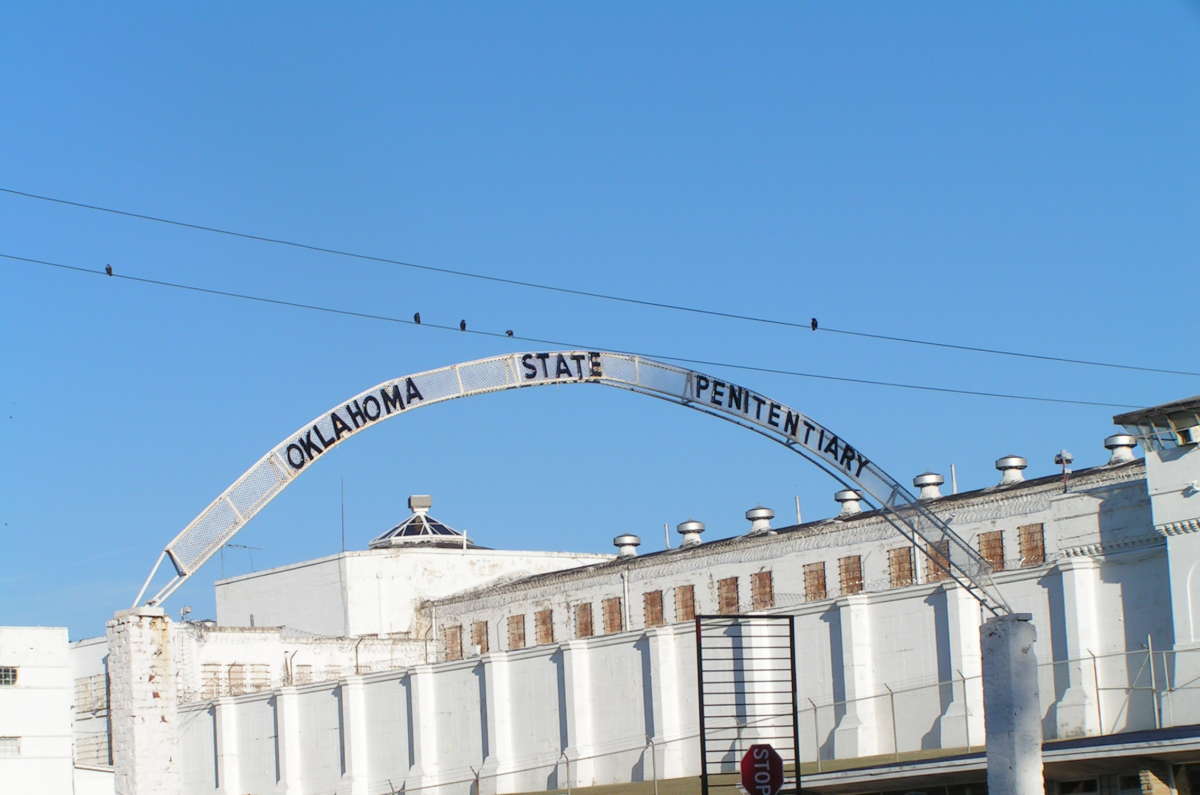Part of the Series
The Road to Abolition
Oklahoma plans to take the life of Bigler Jobe “Bud” Stouffer II next week, and four more lives in coming months. Executions are also planned in Texas and Alabama. Like many people, I’m physically repulsed by the thought of the government killing — murdering — anyone. But an impending execution affects me more than most. I survived 13 grueling years on death row in Illinois. During that time, I witnessed 12 people — sons, fathers, brothers — executed at the hands of the state. Each of us were told our lives were beyond repair, that the world was a better place without us in it.
In 2003, then-Gov. George Ryan issued a blanket commutation to everyone on death row in Illinois. I escaped the death penalty — my sentence was commuted to life without parole. But the nightmares, the trauma and the despair will always haunt me.
Next week’s planned killing in Oklahoma is the latest in a long history of executions carried out in the name of “justice.” But the death penalty is far from just. Capital punishment is a racist relic that violates our most basic civil liberties and exists in stark opposition to the purported fundamental values of our nation. It’s time for this barbaric practice to end.
I cannot describe the horror I felt during each execution, while I was on death row. Twelve separate times, I watched correctional officers stolidly and indifferently march a condemned man to his death. Each execution I witnessed marked the death of a friend — a friend with whom I prayed, shared my fears, and supported as we weathered abuse from cruel and callous prison guards.
My death sentence didn’t end when I walked off death row. Like some 200,000 people nationwide, I was condemned to death by incarceration, or a life sentence without the possibility of parole.
The U.S. Supreme Court in 1972 abolished the death penalty because its application was arbitrary and discriminatory. But it allowed the practice to resume four years later, after states adopted new rules intended make the death penalty “fairer.” Yet, like many criminal legal reforms, those changes did little to fix a system rife with inequity. A 2020 report found that more than 40 percent of people awaiting execution in the U.S. were Black, like me, despite the fact that Black people only make up about 13 percent of the U.S. population. The report also found prosecutors were more likely to seek the death penalty when the victim was white.
Proponents of state-sanctioned killing argue it is reserved for the worst of the worst. In reality, those condemned to die are often the most vulnerable members of our communities — roughly one-fifth of people on death row have severe mental illnesses. When the state sought to end my life, I was 19 years old, illiterate and living with mental illness. Although I was still just a child, I had survived years of neglect, physical and emotional abuse, and sex trafficking. Homeless and starving, drugs and alcohol became my only escape. Delusional and desperate, I killed a man for money he didn’t have.
Like all people on death row, I needed a zealous advocate to fight for me at every step of the way. Yet lawyers charged with representing vulnerable people facing death at the hands of the state are rarely up for the task. Far too often, the most serious cases are handled by appointed attorneys who are plainly ineffective. Many are overworked, underpaid and unprepared to navigate the labyrinthine process from conviction through final appeal.
Perhaps the most glaring evidence in opposition to the death penalty is the frailty of human judgement. Given the stakes — a human life — there is no room for error, factual or moral. But error is everywhere: Since executions were reinstated in the 1970s, 185 people sentenced to death have been exonerated.
Even worse is the near certainty that a person condemned to die will continue to develop, to grow, to mature long after their death sentence has been handed down. During the 13 years I spent on death row, and in the 17 years I spent serving a natural life sentence after that, I learned to read, went to college and found religion. I started one of the most successful programs within Illinois prisons, one run entirely by incarcerated people. I lived and, despite the inherent oppression of our prison system, I thrived.
My humanity was considered “irrelevant” by the state when I was on death row, my existence reduced to my worst act. The complex life experiences leading up to that act — abuse, trauma, addiction, poverty — were brushed over and ignored.
I survived death row, but I still have not made sense of this country’s hypocrisy. We kill people to emphasize that killing is wrong. We value personal growth and responsibility but make no space in our legal system to recognize transformation.
We kill in the name of justice. A racist system that ends the lives of vulnerable people, no matter who they become, is anything but.
Join us in defending the truth before it’s too late
The future of independent journalism is uncertain, and the consequences of losing it are too grave to ignore. We have hours left to raise the $12,0000 still needed to ensure Truthout remains safe, strong, and free. Every dollar raised goes directly toward the costs of producing news you can trust.
Please give what you can — because by supporting us with a tax-deductible donation, you’re not just preserving a source of news, you’re helping to safeguard what’s left of our democracy.
